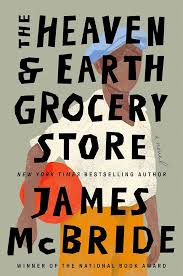Chapter 28: The Last Love
byChapter 28: The Last Love begins with Anna Morse, a resilient woman who manages both a funeral home and her own emotions in the quiet town of Linfield. She had considered leaving many times, especially after losing her husband, but responsibilities and loyalties kept her grounded. Although finding trustworthy workers was a constant challenge, she relied heavily on Nate Timblin, a man known for his quiet strength and reliable character. Anna had learned the hard way that assistance from others often came with complications—either due to race or romantic expectations—but Nate was different. His dependability was rare, and that quiet bond between them had created a foundation of mutual trust. Even when Nate asked her for a ride to Hemlock Row, she sensed more than he let on. But she didn’t press. Sometimes, companionship speaks louder in silence than it does in words.
Their drive together was one of calm understanding, with Nate offering few words but immense presence. Anna used the time to discuss minor matters, like a leak in her building, not wanting to confront the heavier issues that lingered beneath. She offered Nate a temporary stay in her home, but he declined with the same quiet dignity he always held. It was gestures like these that made Nate invaluable—not just as a handyman, but as a constant figure in Anna’s life. After dropping him off, she set off for Reading, comforted by Nate’s willingness to fix her roof and tend to her space. Meanwhile, Nate remained behind, handling the tasks meticulously, finding peace in simple work. But his mind wasn’t at ease—he had plans for the night, plans tied to Hemlock Row, plans that bore risks he couldn’t fully measure.
Later that night, Nate prepared himself to walk into danger. With the job complete, he organized his tools and stepped into the quiet, eerie viewing room. Even the sight of two coffins didn’t faze him—it was part of his routine, part of life in Chicken Hill. He didn’t fear the dead, only the living. That fear grew as he made his way along the dark road toward Hemlock Row, remembering that Miggy expected him at exactly 11:30. She had promised secrecy, but Nate was no fool. He knew betrayal often came from those with the best intentions. If Miggy lost her nerve or said the wrong thing to the wrong person, everything would collapse. He had spent his life surviving under the weight of injustice, but this was different. Now, he wasn’t just fighting for himself—he was fighting for memory, for redemption.
Miggy, waiting at her window deep into the night, eventually gave up hope. When she knocked on Bullis’s door, the old man’s words confirmed her fears: Nate wasn’t coming. Bullis, hardened by age and experience, had no patience for what he saw as idealism. He wanted no part in helping anyone escape from Pennhurst or face down men like Son of Man. While Miggy hoped for a miracle, Bullis only hoped to keep his job. But fate, as always, had other plans. By the time Bullis made his way to the egg cart and began his morning route, something felt off. The animals were too quiet. The signs were there—nature often senses violence before people do.
Driving the old horse Titus into the morning dark, Bullis followed his usual path, even taking a hidden tunnel toward the ward. The silence around him was unsettling, the fatigue in the old horse troubling. He moved through his routine anyway—eggs packed, coffee brewed—until he met Son of Man. The ward attendant wasn’t like himself. There was something sinister in his smile, something theatrical in his words. When Bullis refused to back down, his temper finally snapped—and so did Son of Man’s restraint. A vicious beating followed, one masked by a sock to avoid bruises, brutal and efficient. Bullis tried to fight back, but age and pain overwhelmed him. He believed he would die in that tunnel, that his end had come not by illness, but by the cruelty of a younger man.
But Nate had not failed to arrive. Hidden within the cart itself, beneath egg crates and wood panels, he emerged like a specter of justice. His presence halted the violence. Son of Man, frozen by Nate’s grip, couldn’t move, couldn’t speak. For a moment, two men faced each other, not as enemies but as opposing legacies—one of pain and one of purpose. Nate had endured years of loss, violence, and prison. His was a life scarred by systemic failure and personal sacrifice. Yet when he looked into Son of Man’s eyes, he didn’t see a monster. He saw a boy caught in the same web he had once been caught in. It wasn’t hate that moved Nate—it was understanding.
Still, Nate had no choice. He couldn’t allow more pain to spread, couldn’t risk another generation repeating his past. With quiet resolution, he drove the knife home—ending the threat and perhaps freeing himself from the chains of his own history. His final words weren’t filled with rage; they were filled with empathy. “It ain’t your fault,” he told Son of Man. In that moment, it became clear that Nate wasn’t just avenging the past—he was closing a chapter. One written in pain but ending in truth. The sound of the morning train echoed through the tunnel like a final note in a long-forgotten song, as the ghost of the man Nate used to be disappeared into the early light.


